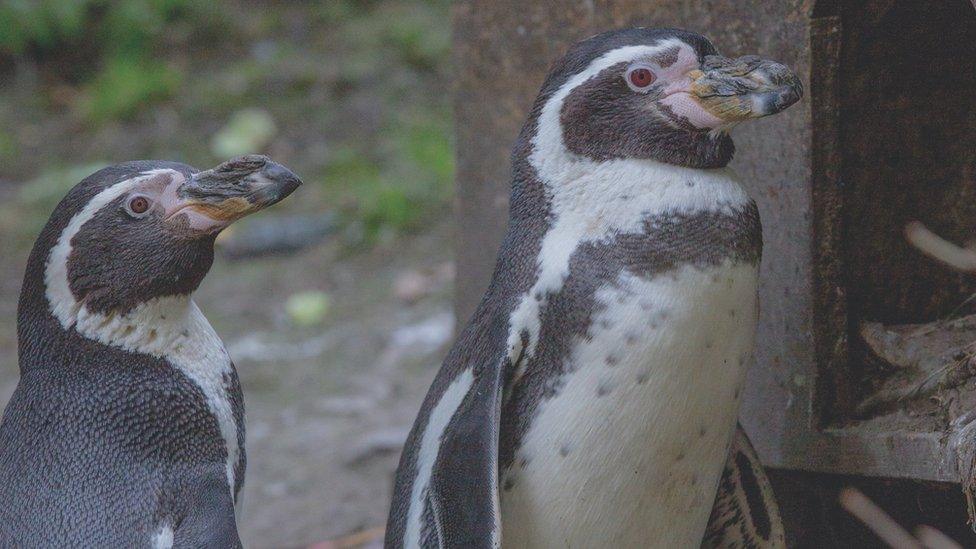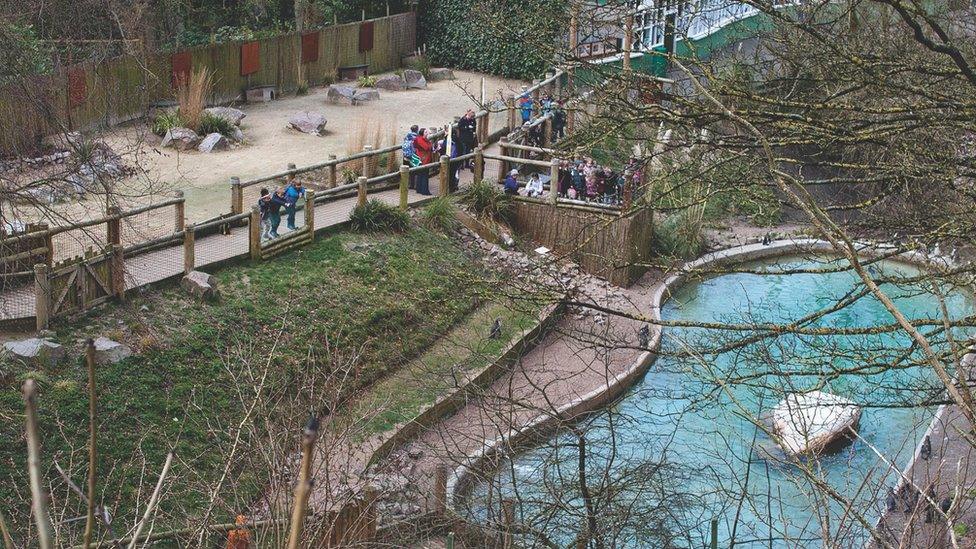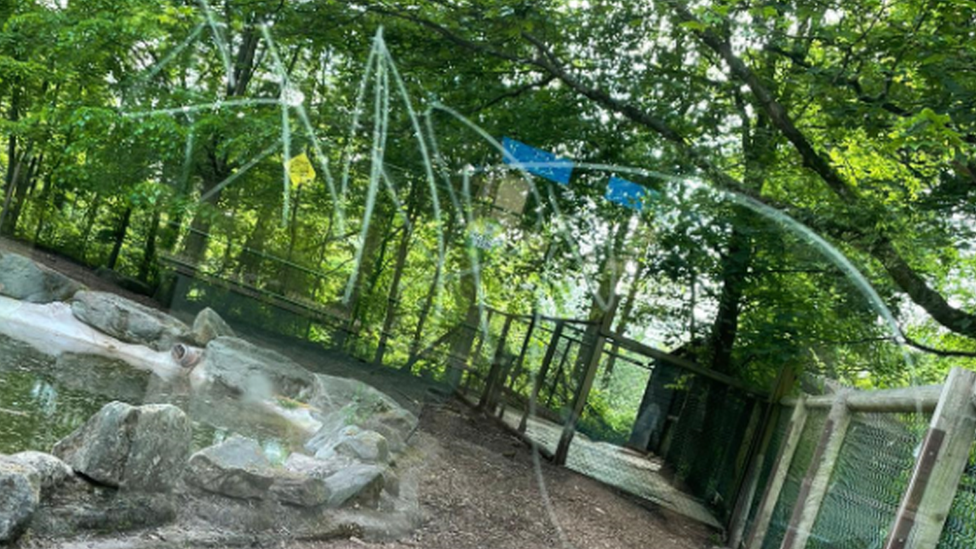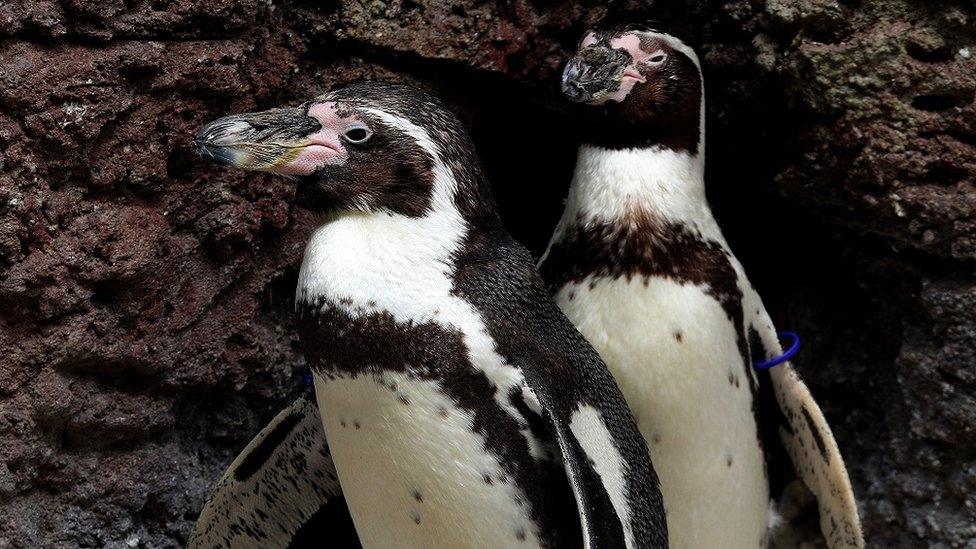Dudley Zoo loses majority of penguin population to malaria
- Published

Avian malaria is caused by a parasite transmitted by mosquitoes among other insects
A large number of penguins have died at a zoo due to an outbreak of Avian malaria.
Dudley Zoo has been breeding the Humboldt penguins for 30 years and has one of the largest self-sustained colonies in the country.
About 50 of the 69 birds in the colony have so far died, although there is no risk to humans.
Its director, Derek Grove, said the zoo staff were "heartbroken by the huge loss".
Mr Grove said it has been "especially distressing" for the bird team, who have been devoted to their care.
"Their dedication and tireless efforts to care for our penguins over recent weeks has been exemplary," he said.
"They've provided round-the-clock care to individually treat the birds in their fight to save as many as possible and we thank them for their determination.
"Having consulted with avian experts and animal collections around the world, we know we've done all we can."

The zoo has been breeding penguins for about 30 years
The zoo's colony began with five hand-reared chicks in 1991 and has since helped boost groups at collections around the country.
Mr Grove said the zoo had never experienced anything similar previously and cases like this were rare.
Avian malaria is caused by a parasite, different to the one which causes human malaria, and although it does not usually kill, it can be lethal to species which have not evolved resistance to the disease, such as penguins.
"Unfortunately, penguins are particularly susceptible to the disease as they do not have natural resistance against it and it's also not easily identifiable through medical tests," Mr Grove said.
"We do not know if last year's unusual weather pattern has played a part, with wet and muggy weather not only impacting the penguin's moulting season, but also increasing the risk of mosquitos. But what we do know is we now need to focus on continuing to treat the remaining birds and putting in place additional preventative measures to avoid this tragedy happening again."

Follow BBC West Midlands on Facebook, external, Twitter, external and Instagram, external. Send your story ideas to: newsonline.westmidlands@bbc.co.uk, external
- Published31 May 2021

- Published6 January 2019
